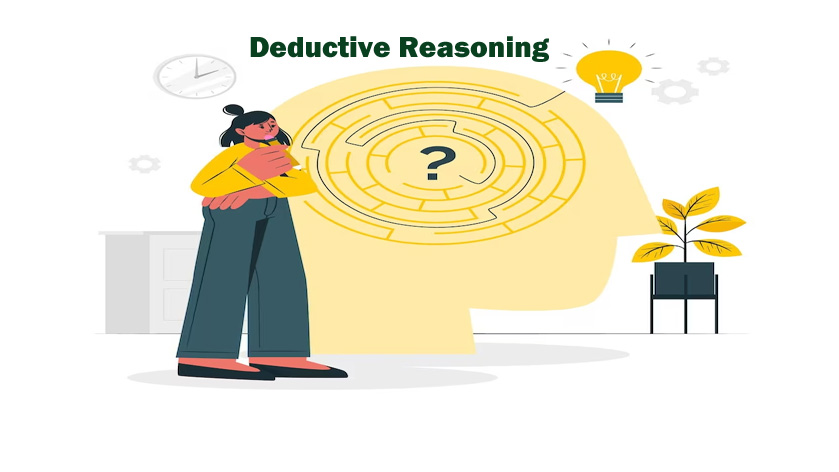Deductive reasoning is a rational method in which a conclusion is drawn, and this will be based on the concord of multiple premises, which are assumed to be true. In other words, it is a logical approach where you move from basic ideas to particular conclusions through various statements in mathematical reasoning.
There is a difference between a premise and a conclusion. When we talk about the premise, it is a statement that will lay the groundwork for a basic idea. A conclusion is a statement that the premises will support. The first premise is what we give, then a second premise, and finally, after both premises, we will land on a conclusion. This process of constructing premises and coming to a conclusion is called deductive reasoning.
Example of Deductive reasoning:
Premise 1: If it rains, the streets will be wet.
Premise 2: It is raining.
Conclusion: Therefore, the streets are wet.
What are the Applications of Deductive Reasoning?
- It can be used during the process of hiring candidates. The reasoning test will help demonstrate the candidate’s ability to analyze and determine the information to make a logical deduction. This is particularly useful for high-skilled roles or promoting employees to higher positions.
- Many marketing professionals use this to test advertising strategies and formulate marketing ideas for better solutions.
- It helps people in management positions who have to make crucial business decisions on a day-to-day basis.
Conclusion
In conclusion, deductive reasoning provides a systematic method for reaching valid conclusions based on logical principles, ensuring that the conclusion is proper if the premises are accurate and the logical rules are valid. Deductive reasoning is a logical process that uses logical rules to draw precise conclusions from general principles or premises. It follows a top-down approach, starting with overall principles and narrowing to explicit conclusions.

